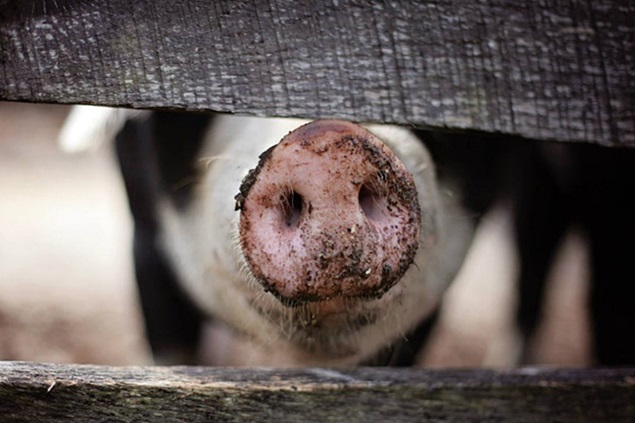1647

The production of pork in Europe continues to decline steadily, reports PigProgress. In the first 7 months of 2023, pork production in the EU-27 countries totaled 11.9 million tons. That is 8% less than in the same period last year.
Second year of decline
This marks the second consecutive year of production decline, as production for 2023 has dropped by over 10% compared to the 5-year average. The latest forecasts from the European Commission for pork production in 2023 are that the year will end with a 6.6% decrease.
Figures are declining in all major European pork-producing countries. In Spain, by far the largest pig country in Europe, 56.3 million pigs were slaughtered last year, according to the Ministry of Agriculture.
That is 2.1 million or 3.5% less than in 2021 and a return to the previous year's level. In terms of tonnage, Spain produced 5,027 million tons of pork last year. This is a decrease of only 3% from the previous year.
And in this country, the decline seems to continue with 30.6 million pigs slaughtered in the first 7 months of this year. On an annual basis, this would amount to just over 52 million for the entire year 2023.
Fewer sacrifices
In the United Kingdom, 780,000 pigs were slaughtered in September 2023. This is 11% less than in the same period last year, according to Defra.
Pork production was 73,000 tons, 10.2% less than in September 2022. The annual agricultural census showed a decrease of about 10% in the number of breeding sows in the UK.
Recently, higher pig prices have led to a slight improvement in the profitability of pig farmers, according to the AHDB taxation organization.
EU imports of pork into the UK totaled 84,000 tons by the end of July. This is a decrease of 16,200 tons (-16%) compared to the same period last year.
"This is happening despite a decrease in domestic production, which could have necessitated larger imports to meet demand. This indicates that overall demand for pork has decreased as consumers face cost-of-living crises," said AHDB.
4.3 fewer pigs slaughtered in France
The French agricultural statistics office Agreste reports 1.716 million pigs slaughtered in August, which is 4.3% less and also 7.9% below the 5-year average for that month. Agreste also reports a little over 3% decrease in pork consumption in France. As a result, France imported 7.1% less pork and pork products in July 2023, totaling 49 million tons.
Exports decreased by 9.1% to 42 million pounds. The trade balance for pork and pork products is still strongly negative, irritating both livestock organizations and the government.
Serious consequences for the industry
Slaughter figures are also declining in other major pork-producing countries, such as Germany (-9%), the Netherlands (-15%), and Denmark (-21%). The constant decline has serious consequences for the pork processing industry.
Dutch pork producer Vion Food Group has adjusted its production capacities in Germany to the market by implementing reorganizations at the Emstek, Holdorf, and Landshut sites. Recently, Vion also announced the closure of its Großostheim site in Bavaria, Germany, with an additional loss of 220 jobs.
Tönnies, Germany's largest pork processor, has closed locations or adjusted production capacity in other ways.
In the UK, Pilgrim UK, part of the Brazilian meat giant JBS, has closed a series of sites it previously acquired from the British brand Danish Crown Tulip UK.
In July, Pilgrim UK announced the cessation of production in Ashton-under-Lyne with a loss of 542 jobs, following previous closures of sites in Coalville and Bury St Edmunds.
In Denmark, the largest producer, Danish Crown, announced a major restructuring and cost reduction operation this summer. "Since the spring of 2022, Danish Crown has been seriously challenged in terms of its competitive power.
Even though current pig prices are close to a record level, settlement prices for pigs in Denmark are currently much lower than in the rest of Europe.
Therefore, Danish farmers have not been attractive enough to fatten pigs for slaughter in Denmark, so over the summer, management has dedicated its efforts to developing a plan to streamline and rethink Danish Crown's core business," said the company on that occasion.





